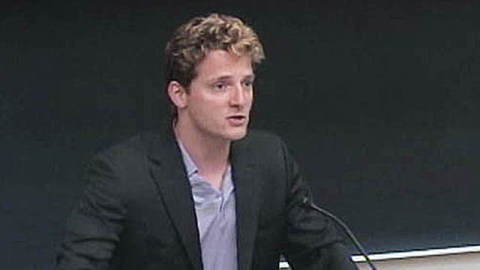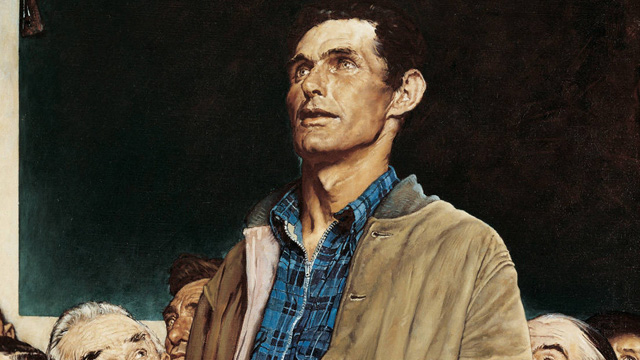Matthew Nisbet: Is This an Age of Engagement or Distraction?

“Over the last decade there has been a fundamental revolution in how we communicate,” says Matthew Nisbet, professor of communications at American University and Big Think’s newest blogger. The rigid separation of audience and publishers has collapsed, and this raises some fundamental questions about consumers in our society, says Nisbet: “Are they empowered by these changes or are they distracted and more easily controlled? Do we live in an age of engagement or do we live in an age of distraction?
In his second Big Think interview, Nisbet talked about the his new blog “Age of Engagement” that will explore these and many other issues at the intersection of communication, culture, and public affairs. “Readers will be able to eavesdrop in and read about the many different types of conversations that are going on in the university classroom in the field of communication, in the field of political science, and in other related academic fields.”
Nisbet told us that the debate over digital media’s influence in our lives tends to be simplified by those in both camps—digital enthusiasts and digital pessimists—but that the truth lies somewhere in between. The Internet has the potential to make both smarter and more distracted; what’s interesting is to examine specific examples of each.
Nisbet also talked about the Internet’s power to influence politics and movements. The blogosphere, as well as the rise of cable news, allows consumers of media to “self-select themselves into ideological echo chambers.” In part, he says, this has contributed to the growth of the atheist movement. But claims that traditional media is no longer relevant are overstated; blogs need traditional media, says Nisbet, citing a study which found that “90% of the topics that were being talked about at blogs or other independent media originated with traditional news organizations.”
Though traditional media may still be relevant, “the for-profit model of traditional news gathering is really in peril,” says Nisbet. “We need to think creatively and we need to move forward assertively with innovations either in not for profit models for the news that are foundation, government, university supported or innovative models of information and idea dissemination like Big Think.”





